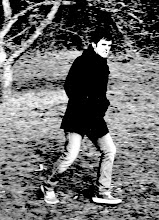
"to do research into an experience ... is to experience it"
-Clandinin and Connelly
{Directed Storytelling}
comes in when long-term ethnographic research is not a possibility
can quickly reveal consistent patterns in people's experiences
knowing the patterns influences a designer's choices so that
he or she can connect with the audience.
{Breakdown}
3 people
storyteller: person who had experience

leader: person to lead storyteller in their story

documenter: person to take notes

more storytellers = richer and more valuable data
a framework should be developed to keep the story going smoothly
Ideas are written down.
One per page
Post-Its make it fun

ideas are anything that seems important to the documenter
or that the storyteller puts emphasis on.
{Interpretation}
ideas are grouped into patterns or clusters
patterns and clusters are named
the most common themes related to the storyteller's experience are defined
{When To Use This}
best used for time-bounded experiences instead of open ended ones
if you cannot directly observe something, use directed storytelling
not a replacement for extensive immersive or human-centered design research

No comments:
Post a Comment